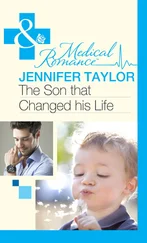Jennifer Worth - In the Midst of Life
Здесь есть возможность читать онлайн «Jennifer Worth - In the Midst of Life» весь текст электронной книги совершенно бесплатно (целиком полную версию без сокращений). В некоторых случаях можно слушать аудио, скачать через торрент в формате fb2 и присутствует краткое содержание. Жанр: Биографии и Мемуары, на английском языке. Описание произведения, (предисловие) а так же отзывы посетителей доступны на портале библиотеки ЛибКат.
- Название:In the Midst of Life
- Автор:
- Жанр:
- Год:неизвестен
- ISBN:нет данных
- Рейтинг книги:3 / 5. Голосов: 1
-
Избранное:Добавить в избранное
- Отзывы:
-
Ваша оценка:
- 60
- 1
- 2
- 3
- 4
- 5
In the Midst of Life: краткое содержание, описание и аннотация
Предлагаем к чтению аннотацию, описание, краткое содержание или предисловие (зависит от того, что написал сам автор книги «In the Midst of Life»). Если вы не нашли необходимую информацию о книге — напишите в комментариях, мы постараемся отыскать её.
In the Midst of Life — читать онлайн бесплатно полную книгу (весь текст) целиком
Ниже представлен текст книги, разбитый по страницам. Система сохранения места последней прочитанной страницы, позволяет с удобством читать онлайн бесплатно книгу «In the Midst of Life», без необходимости каждый раз заново искать на чём Вы остановились. Поставьте закладку, и сможете в любой момент перейти на страницу, на которой закончили чтение.
Интервал:
Закладка:
The golden rule is always to firstly treat anything which can be reversed without drugs. Some of these may take time to work, such as administering an enema: in this case it may be appropriate to give a small amount of medication to settle the patient in the meantime, as it is very hard for relatives and family to watch them in this way.
To illustrate, here are two examples of when simple measures are more appropriate than medications. The first one concerns a gentleman who was dying. He was not expected to live for more than a few days and he appeared agitated. The professionals caring for him administered opiates, which appeared to settle him, but only for very short periods. On visiting him, a nurse specialist giving mouth care noticed his mouth was very sore, full of ulcers and thrush. She suggested regular mouth care with thrush medication and oral gels to hydrate the mouth. Within a few minutes he became very settled, and with a routine of good mouth care he did not require any further medication, and died peacefully the next day.
The other example concerns a lady who had had a massive stroke and was deteriorating in a care home. She, also, appeared very agitated, and was also given strong pain relievers, which did settle her. However, she was becoming more and more drowsy, less responsive, and was requiring quite large amounts of medication to keep her comfortable. One very attentive care assistant noticed that one of her hands was curled tightly into a fist caused by the stroke. She carefully uncurled the hand to find that the lady’s nails had grown considerably and were digging into the palm, had broken the skin and the wounds had become infected. With some careful and much needed dressings and cushioned protection to the hand, as well as by cutting this lady’s nails, she became much more comfortable and again did not require the massive amounts of medication she had appeared to need before.
When someone is dying, those caring for them must act as their advocates: they must be the eyes and ears for that patient, and careful assessment and interventions can make sure they are comfortable, and that their family and friends recognise how respected and cared for they are.
Andrews, M, Bell, E R, Smith, S A, Tischler, J F, Veglia, J M ( :993)- Dehydration in terminally ill patients: is it appropriate in palliative care? Postgraduate Medicine: 93: 201-208.
Burge, F (1993). Dehydration symptoms of palliative care patients. Journal of Pain and Symptom Management. 8: 454-64.
Dunphy K et al (1995). Rehydration in palliative and terminal care: if not, why not? Palliative Medicine 9: 221-228.
Ellershaw, J E, Sutcliffe, J M, Saunders, C M (1995). Dehydration and the dying patient. Journal of Pain and Symptom Management 10(3) 192-197.
Fainsinger, R L, MacEarchen, T, Miller, M J et al (1994). The use of hypodermoclysis for rehydration in terminally ill cancer patients. Journal of Pain and Symptom Management 9: 298-302.
National Council for Palliative Care (2002). Ethical decisionmaking in palliative care: artificial hydration for people who are terminally ill. NCPC, London.
Oliver, D (1984). Terminal dehydration (letter) Lancet, 11: 631.
Regnard, C; Mannix, K (1991). Reduced hydration or feeding in advanced disease - a flow diagram. Palliative Medicine, 5: 161- 164.
Rosner, F (1987). Withdrawing fluids and nutrition: an alternative view. NY State Journal of Medicine. 87: 591-593. In: Rousseau, P (2001). Ethical and legal issues in palliative care. Palliative Care, 28 (2) 391-399.
Sommerville, A (1993). Cessation of treatment, non-resuscitation, aiding suicide and euthanasia. In: Fisher, F, Mcdonald, N J, Weston, R (1993). Medical Ethics Today: its Practice and its Philosophy. BMJ Publishing Group, London.
Tattersall, M H (1993)- Hypercalaemia: historical perspectives and present management. Supportive Cancer Care: 1: 19-25.
Twycross, R G, Lichter, I (1993). The terminal phase. In: Doyle, D, Hanks, G, MacDonald, N (Eds) Oxford Textbook of Palliative Medicine. Oxford University Press.
Beauchamp, T L, Childress, J F (2001). Principles of Biomedical Ethics (5th Edition). Oxford University Press.
Craig, G (2002). Terminal sedation. Catholic Medical Quarterly, February.
Kinzbrunner, B M (1995). Ethical dilemmas in hospice and palliative care. Support Care Cancer 3: 28-36. In: Rousseau, P (2001). Ethical and legal issues in palliative care. Palliative Care, 28 (2) 391-399.
National Council for Palliative Care (2002). Ethical decisionmaking in palliative care: artificial hydration for people who are terminally ill. NCPC, London.
Printz, L A (1992). Terminal dehydration: a compassionate treatment. Archives of Internal Medicine: 152: 697-700.
Regnard, C, Kindlen, M (2002). Supportive and Palliative Care: An Introduction. Oxford: Radcliffe Medical Press. Cited in Bass, M (2006). Palliative Care Resuscitation. John Wiley and Sons: Chichester.
Rousseau, P (2000). The ethical validity and clinical experience of palliative medicine. Mayo Clinical Proctology 75: 1064-1069. In: Rousseau, P (2001). Ethical and legal issues in palliative care. Palliative Care, 28 (2) 391-399.
FURTHER READING AND INFORMATION
Books
Palliative Care Resuscitation by Madeline Bass (2006) Published by John Wiley and Sons. A guide for professionals, patients and families alike on the ethical and legal issues relating to resuscitation when someone has an incurable illness.
Person to Person: Guide to the Care of Those with Failing Mental Powers by Tom Kitwood and Kathleen Bredin (1992): very good guide but not up to date, as it was written before the Mental Capacity Act came into force in 2007. Published by Gale Centre Publications.
Dementia Care Training Manual for Staff Working in Nursing and Residential Settings by Danny Walsh (2006). Published by Jessica Kingsley Publishers.
How We Die by Sherwin B Nuland (1993). Published by Chatto & Windus/Vintage Books.
Staring at the Sun: Overcoming the Terror of Death by Irvin Yalom (2008). Published by Piatkus Books.
How to Have a Good Death by J Ellershaw, et al, ed D Beckerman (based on the BBC documentary by Esther Rantzen). Published by Dorling Kindersley
Caring for Someone With a Long-Term Illness by J Costello (2009). Published by Manchester University Press.
Caring for Dying People of Different Faiths by Julia Neuberger. Published by Radcliffe Publishing Ltd.
Dying Well: A Guide to Enabling a Good Death by Julia Neuberger (2004). Published by Radcliffe Publishing Ltd.
On Grief and Grieving: Finding the Meaning of Grief Through the Five Stages of Loss by Elisabeth Kubler-Ross & David Kessler (2005). Published by Simon & Schuster.
On Death and Dying: What the Dying Have to Teach Doctors, Nurses, Clergy and Their Own Families by Elisabeth Kubler-Ross (introduction by Allan Kellehear) (2009). Published by Rout-ledge.
Oral Feeding Difficulties and Dilemmas: a guide to practical care, particularly towards the end of life. A report of the working party under the chairmanship of Dr Rodney Burnham (2010). Published by the Royal College of Physicians, together with the British Society of Gastroenterology.
Other books and journal articles: although a long list, this will be particularly useful for health and social care professionals.
Читать дальшеИнтервал:
Закладка:
Похожие книги на «In the Midst of Life»
Представляем Вашему вниманию похожие книги на «In the Midst of Life» списком для выбора. Мы отобрали схожую по названию и смыслу литературу в надежде предоставить читателям больше вариантов отыскать новые, интересные, ещё непрочитанные произведения.
Обсуждение, отзывы о книге «In the Midst of Life» и просто собственные мнения читателей. Оставьте ваши комментарии, напишите, что Вы думаете о произведении, его смысле или главных героях. Укажите что конкретно понравилось, а что нет, и почему Вы так считаете.












